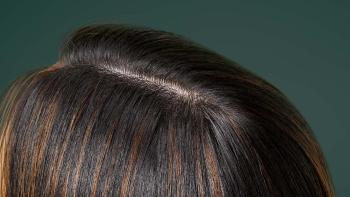What is Psoriasis?
Psoriasis is a chronic skin condition characterised by patches of red, flaky, scaly skin. People with psoriasis have an increased production of skin-cells. These extra cells build up on certain areas of the body, creating the scaly patches on your skin.
The exact cause of psoriasis is still unclear, but it is believed to be an autoimmune condition, triggered by factors such as genetics, arthritic tendencies, food allergies, stress, and long-standing infections.
Psoriasis is estimated to affect at least 2% of the global population. It can occur at any age, but is most common in those between the ages of 20 and 30.
Symptoms of Psoriasis
Psoriasis can occur all over your body, but it is most common on the elbows, knees, lower back and scalp.
On the scalp, psoriasis can be severe, causing very adherent, tightly-packed scales and underlying redness. Itching can, but does not always, occur.
Psoriasis and Hair Loss
Psoriasis usually does not cause large amounts of hair loss. However, if the scaling on your scalp is very tight, the diameter of your hairs may become constricted, which can cause breakage.
Psoriasis is often confused with another severe scalp condition, pityriasis amientacea. This is a scaling of the scalp that causes distinct hair loss.
Treating Psoriasis
There is currently no cure for psoriasis. However, our expert Trichologists have a great deal of experience treating and improving its symptoms.
Mild cases can usually be cleared with prescription creams and tar-based shampoos. However, treating more severe psoriasis requires care and patience. Removal of the scales is time-consuming and has to be done gently in order to avoid damage.
At the Philip Kingsley Trichological Clinics, our experts use specially formulated creams, warm steamers and infrared lamps to soften the scales. We then gently remove them. Such treatments can give considerable relief. However, they do not cure the condition, and repeat treatments are usually required if symptoms return.
In some cases, we find that treatment with ultraviolet light helps. In fact, psoriasis often improves on its own during the summer months when you are naturally exposed to more UV rays.









